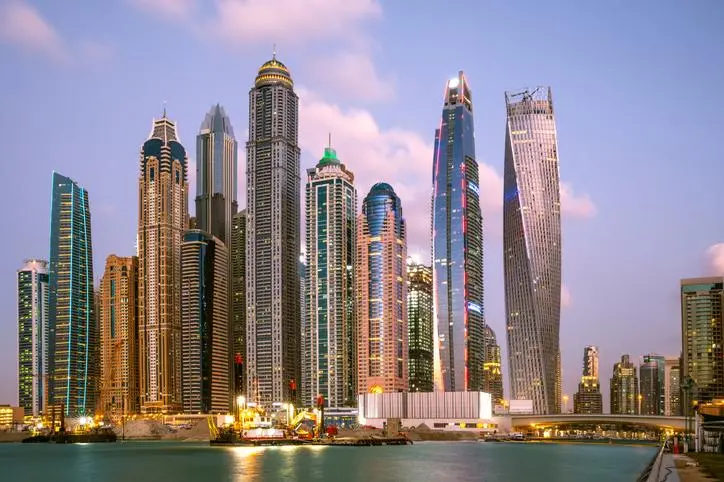PHOTO
UAE companies plan to implement a new model of work, following the formidable disruption to businesses owing to the spread of COVID-19, according to a recent study published by JLL MENA, a real estate advisory firm.
According to JLL’s Q2 2020 UAE Real Estate Market Performance report, current demand for offices is focused on smaller spaces of less than 1,000 sqm as corporates in the country are consolidating their operations and implementing cost-reduction measures.
“We expect corporates to adopt a hybrid model of working, with some of their employees based in HQ offices, while others continuing to work from home, or in flexible office spaces,” Dana Salbak, Head of Research, JLL MENA said.
As the demand for office space is undergoing a shift, Salbak said that he expects to see “companies apply their own philosophy and ways of working based on business needs and staff comfort levels.”
Office space market
In Dubai, headline rents across office spaces (grade A) dropped 13 percent year-on-year (yoy) in Q2 2020, while rents fell by 1 percent in Abu Dhabi (grade A and B), the report revealed.
In fact, the second quarter of 2020 saw no new office spaces being handed over in both emirates.
However, 312,000 sqm of gross leasable area (GLA) and 48,000 sqm of GLA are expected to be handed over in Dubai and Abu Dhabi, respectively, over the second half of the year, according to JLL.
Retail market
According to JLL, the total stock of retail GLA remained stable in Q2 as no new centers were delivered.
Average rental rates across primary and secondary malls in Dubai fell 17 percent in Q2 2020. In Abu Dhabi, average rental rates across primary and secondary malls dropped 20 percent.
“Major projects currently in the pipeline and due for delivery in the second half of the year are expected to witness construction delays. This comes as retailers continue to rethink their cash positions and prioritize their financial stability,” the report said.
Hospitality market
According to the report, no new hotel developments were handed over in the second quarter for Dubai and Abu Dhabi, while overall, the hotel market in the UAE witnessed significant declines in performance levels over the past quarter.
“Occupancy levels decreased to 52 percent in Dubai and 61 percent in Abu Dhabi in the YT May 2020 vs. YT May 2019,” the report said.
“We expect further downward pressure on the performance of operational hotels, while others will likely remain closed over the summer months,” it added.
Residential market
In Dubai, 5,600 residential units were handed over during the second quarter, while in Abu Dhabi 1,200 residential units were delivered to owners.
“This represents a significant revision from originally planned deliveries, as project handovers have (expectedly) experienced delays,” the report said.
Average sale prices and rental rates in Dubai dropped 7.5 percent and 9 percent yoy, respectively, in Q2 2020.
Meanwhile, the average sale prices and rental rates in Abu Dhabi headed south by 3.5 percent and 4 percent yoy, respectively, in Q2 2020.
(Reporting by Gerard Aoun; editing by Mily Chakrabarty)
#WORK #JLL #REALESTATE #RENT #COMMERCIAL #RESIDENTIAL #COVID19 #UAE
Disclaimer: This article is provided for informational purposes only. The content does not provide tax, legal or investment advice or opinion regarding the suitability, value or profitability of any particular security, portfolio or investment strategy. Read our full disclaimer policy here.
© ZAWYA 2020




















